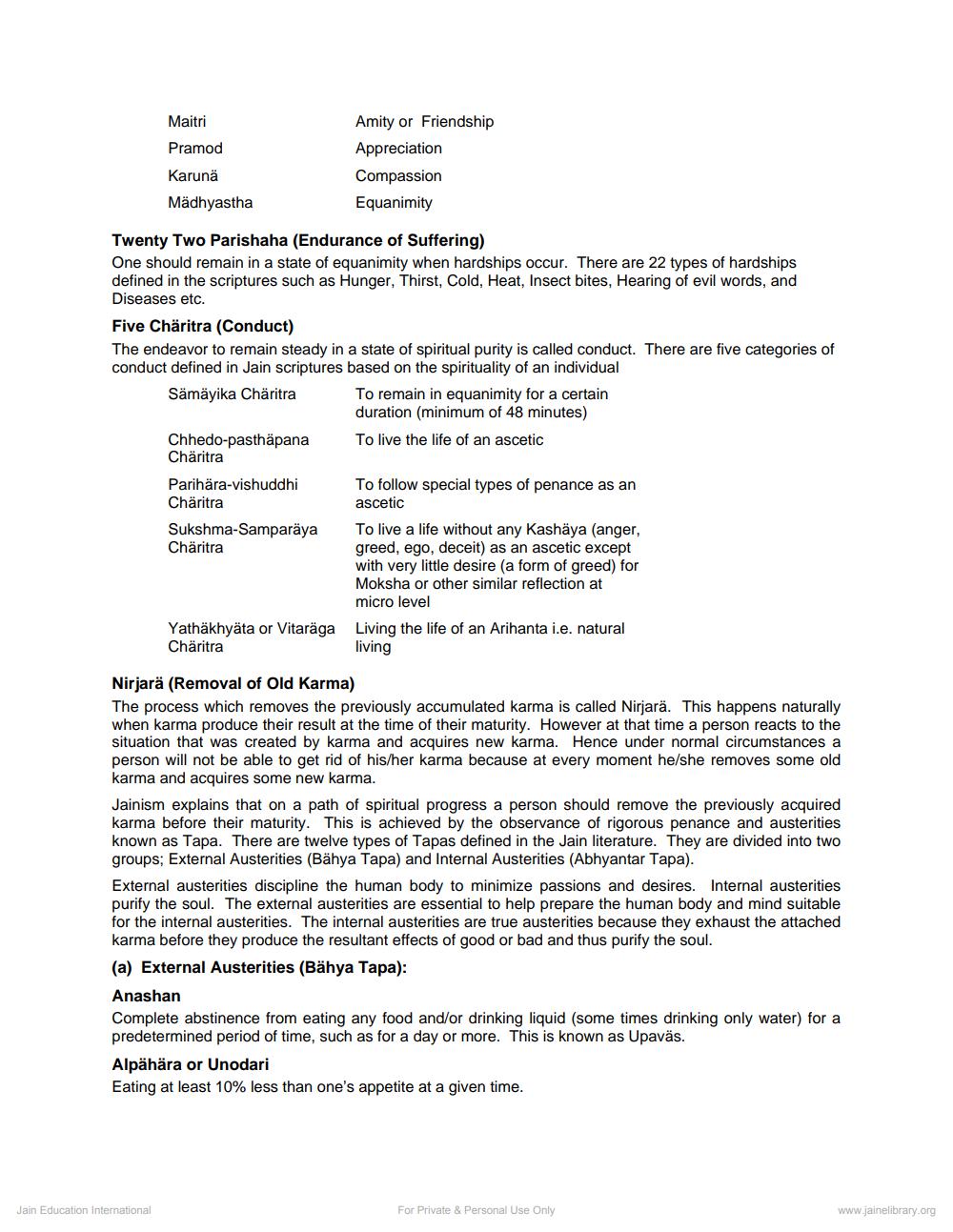________________
Maitri
Pramod Karuna Mädhyastha
Amity or Friendship Appreciation Compassion Equanimity
Twenty Two Parishaha (Endurance of Suffering) One should remain in a state of equanimity when hardships occur. There are 22 types of hardships defined in the scriptures such as Hunger, Thirst, Cold, Heat, Insect bites, Hearing of evil words, and Diseases etc. Five Chäritra (Conduct) The endeavor to remain steady in a state of spiritual purity is called conduct. There are five categories of conduct defined in Jain scriptures based on the spirituality of an individual Sämäyika Charitra To remain in equanimity for a certain
duration (minimum of 48 minutes) Chhedo-pasthäpana To live the life of an ascetic Chäritra
Parihära-vishuddhi Charitra Sukshma-Samparaya Charitra
To follow special types of penance as an ascetic To live a life without any Kashaya (anger, greed, ego, deceit) as an ascetic except with very little desire (a form of greed) for Moksha or other similar reflection at micro level Living the life of an Arihanta i.e. natural living
Yathäkhyäta or Vitaraga Charitra
Nirjarä (Removal of Old Karma) The process which removes the previously accumulated karma is called Nirjarä. This happens naturally when karma produce their result at the time of their maturity. However at that time a person reacts to the situation that was created by karma and acquires new karma. Hence under normal circumstances a person will not be able to get rid of his/her karma because at every moment he/she removes some old karma and acquires some new karma. Jainism explains that on a path of spiritual progress a person should remove the previously acquired karma before their maturity. This is achieved by the observance of rigorous penance and austerities known as Tapa. There are twelve types of Tapas defined in the Jain literature. They are divided into two groups; External Austerities (Bähya Tapa) and Internal Austerities (Abhyantar Tapa). External austerities discipline the human body to minimize passions and desires. Internal austerities purify the soul. The external austerities are essential to help prepare the human body and mind suitable for the internal austerities. The internal austerities are true austerities because they exhaust the attached karma before they produce the resultant effects of good or bad and thus purify the soul. (a) External Austerities (Bähya Tapa): Anashan Complete abstinence from eating any food and/or drinking liquid (some times drinking only water) for a predetermined period of time, such as for a day or more. This is known as Upaväs. Alpähära or Unodari Eating at least 10% less than one's appetite at a given time.
Jain Education International
For Private & Personal Use Only
www.jainelibrary.org




